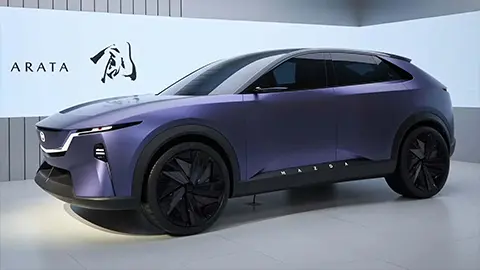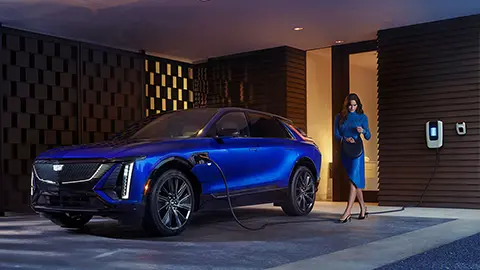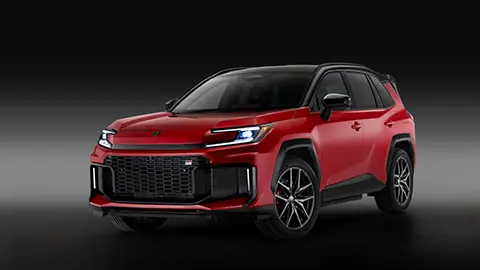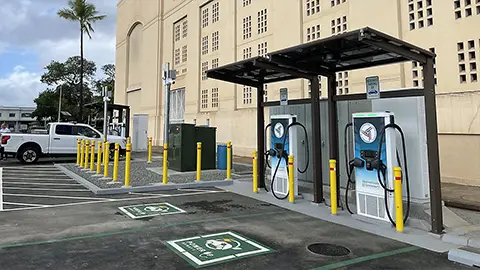BMW: Testing the Hydrogen Powered SUV
At the end of 2022, BMW announced that it would produce a small number of X5 SUVs powered by hydrogen fuel cells, which it called the iX5 Hydrogen. Powered by hydrogen fuel cells, the iX5 Hydrogen still produces zero carbon emissions while offering much faster refueling, in theory making it more convenient to own and drive over long distances.

Fuel Cells Work in Extreme Heat
The first iX5 Hydrogen vehicles were completed in February 2023, and BMW has been testing them all over the world; they recently completed an impressive test session in the United Arab Emriates, where the pilot production cars were exposed to consistently intense temperatures of over 110 degrees. According to the automaker, the iX5 Hydrogen’s fuel cell system performed flawlessly despite the heat, sand, dust, varying gradients, and massive fluctuations in humidity.
In the UAE, the iX5 Hydrogen’s efficient fuel cell system, two hydrogen tanks, electric motors, electronics systems were judged to be close to production readiness. BMW’s Munich-based development team examined the functionality of all of the electric systems under the extreme conditions as well as the cooling system’s ability to guarantee the full performance of the iX5.

How Does a Hydrogen Fuel Cell Work?
Unlike conventional electric vehicles, which rely on a large rechargeable battery to power an electric motor, fuel cell vehicles like the iX5 Hydrogen produce electricity on-board using fuel cell stacks. Two on-board high-pressure tanks provide hydrogen for the stacks, which cause a reaction with oxygen from the air to produce electricity, and water vapor as exhaust. The energy generated powers electric motors that drive the iX5 Hydrogen’s wheels.
The main advantages for hydrogen are twofold.
First, they are more convenient. Hydrogen drivetrains combine the advantages emissions-free driving with the easy refueling and long-distance capabilities of gasoline vehicles. They’re great for drivers who need short refueling stops for long-range drives, and they’re also a good fit for parts of the world that still lack adequate charging infrastructure.
Reducing Dependence on Critical Minerals
Second, hydrogen fuel cells (which power electric motors) don’t require critical and expensive raw materials like cobalt, lithium, or nickel – which often come from conflict-prone regions. BMW feels that by investing in hydrogen, they are also strengthening their geopolitical resilience.
The downside of hydrogen at the moment is refueling infrastructure, which is far from robust. Indeed, there are only a small number of hydrogen filling stations in the U.S., mostly concentrated in California. However, BMW says it’s certain the fuel will become increasingly important for individual mobility – and it feels that a mix of battery-powered electric cars and fuel-cell electric hydrogen cars will be the best approach for the long term.

Hydrogen or Battery Electric?
Even as it rolls out fully-electric models like the i4 hatchback, i7 sedan, and iX SUV, BMW continues to invest in hydrogen. If tests like the UAE one continue to go well, and demand for hydrogen vehicles increases, the company could easily ramp up higher volume production at one of its plants around the world, including the U.S. Regular and plug-in hybrid X5 models are currently being built in Spartanburg, South Carolina.
BMW isn’t the only company that believes in hydrogen fuel cells. Toyota and Hyundai currently sell small numbers of hydrogen fuel-cell vehicles in California – the Mirai and Nexo are already on our roads, demonstrating the viability of the technology on a daily basis. And Honda is a believer in the technology as well, having previously sold the fuel-cell electric Clarity in the U.S.
















